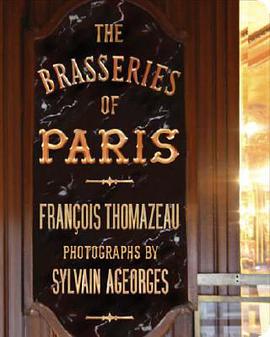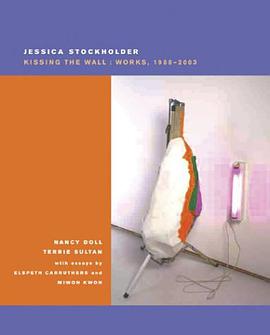

具体描述
This is the most comprehensive survey and analysis of twentieth-century Brazilian Architecture, written by Brazilian architects and writers for an international audience. Its key events and buildings appear not in a conventional chronological account but within a series of thematic chapters (critical reception, construction issues, urbanism, typological description of the modern house, affordable housing and new fields of practice, survey of recent works). It is a history of Brazilian modern architecture retold with a Brazilian voice by the new generation of critics and historians. This book offers a fresh reading of the well-known era of high-modernism of the 1930s-1960s placing it within both the context of architecture before and since and the broader changes taking place in Brazilian culture at the time. It also charts post-Brasilia developments, including contemporary projects, showing how architects have adapted to the contradictions of an increasingly polarised society and the relevance of Brazilian architecture for current debates around issues such as large-scale urban growth and the tension between local identities and global civilisation. Covering around 200 projects, it is extensively illustrated with both historical black and white photographs and new colour photographs and drawings In cultural terms, Brazil is famous for its music and its architecture. As the largest and richest country in Latin America, Brazil is set apart from the others by its language, and by the ethnic diversity of its population, all of which contribute to its cultural distinctiveness. Yet, the architecture of twentieth-century Brazil is all too often represented by the work of one man (Oscar Niemeyer) or by two cities (Rio de Janeiro and Sao Paulo). This book is a study of Brazilian architecture in the twentieth-century, from the first modern houses of the 1920s and Le Corbusier's seminal visits to the country, through the well-known 'heroic' period of the 1940s-1950s and its crisis post-1964 up to contemporary developments. The high-modernist era coincided with the period of Brazil's most rapid economic growth around the middle of the century, when the country was transformed from a predominantly agricultural economy with coffee as its principal export, into an urbanised society with an industrial economy that saw the creation of Brasilia, one of the most utopian projects of the Modern Movement. Towards the end of this period, as society became increasingly polarised between a prosperous middle class and a very poor underclass, architects also became more pre-occupied with the nature of public buildings and the problems linked to accelerated urban growth. What has usually been seen as a period of creative experimentation in architecture underwent a crisis with the advent of the military dictatorship in 1964, while the rapid growth of the economy was sustained and even increased, with the consequent rise in activity of the building industry until the 1980s, one of the inherent contradictions of Brazil that this book seeks to address. While conventional accounts treat 1964 as the end of Brazilian architecture, this was not the case. Brazilian architects adapted to the changed circumstances, and developed new strategies that were no less creative, but sometimes less demonstrative. This has been particularly so since the restoration of democracy in the early 1980s, and again, a major theme of the book is to show continuities between the more recent work and that of the high-modernist era of the mid-century. The book will be edited by Elisabetta Andreoli and Adrian Forty, who will frame the main chapters with the introduction and a foreword to the survey of recent works. Five Brazilian writers will contribute essays to the body of the book that, together, provide a thorough study of modernist architecture and beyond in Brazil, and examine the works from the 'inside', explaining the social, cultural and political context that is so crucial to understanding the architecture.
作者简介
目录信息
读后感
评分
评分
评分
评分
用户评价
相关图书
本站所有内容均为互联网搜索引擎提供的公开搜索信息,本站不存储任何数据与内容,任何内容与数据均与本站无关,如有需要请联系相关搜索引擎包括但不限于百度,google,bing,sogou 等
© 2026 book.wenda123.org All Rights Reserved. 图书目录大全 版权所有




















